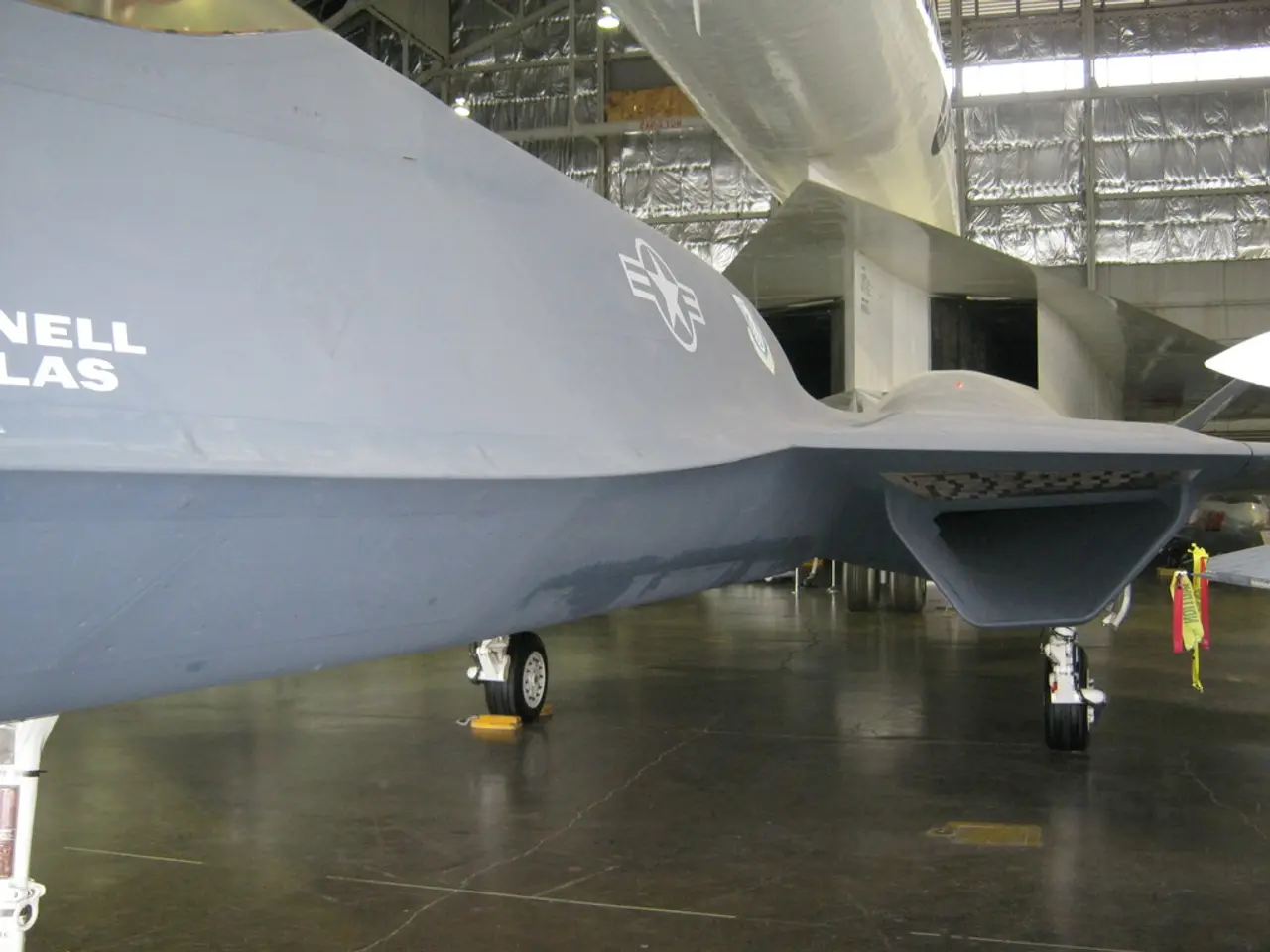Bureau of Competition Advocates Proposes Air Travel Adjustments Due to High Prices and Scarce Options for Passengers
The Competition Bureau's latest report called for substantial changes in Canada's airline market to boost competition, slash airline prices, and challenge government powers that might hinder a genuinely competitive industry.
For travelers like Kelsey Wokke, who recently spent $1,000 on a Vancouver-Calgary roundtrip ticket, the call for more competition rings loud and clear. "It's nuts," she states. "And it would be nice if more of the money wasn't going to airport fees."
Thursday's release of the Competition Bureau's recommendations for the air travel industry emphasizes the importance of leveraging international capital and experience to strengthen domestic competition. One key proposal includes increasing the foreign ownership cap for Canadian airlines to 49%.
Another notable suggestion is creating a new breed of 100% foreign-owned, "domestic-only Canadian airlines," modeled after Aussie regulations. These modifications aim to foster a more competitive landscape and reduce airfare costs.
Passenger gripes with exorbitant fees
Airport fees are a significant source of airfare frustration for passengers. According to the Competition Bureau, these charges account for about 30 cents of every dollar paid on traditional full-service airlines and a higher percentage on ultra-low-cost carriers.
Fees break down as follows:
- Fuel tax: 1%
- Air travelers security charge: 3%
- Nav Canada air navigation charges: 5%
- Airport landing, terminal, and operational fees: 20%
Independent aviation analyst Rick Erickson points out that these high fees stifle new entrants in the market, arguing that "aviation gets punished."
Lower airfares with more competition
Research by the Competition Bureau reveals that when one new airline competes on a route between two cities, airfares usually drop by 9%. Currently, two carriers—Air Canada and WestJet—handle between 56 and 78% of domestic passenger traffic at major Canadian airports.
Over time, these duopolies have divided the market geographically, with Air Canada dominating the eastern region and WestJet the western region, leading to a lack of competition between them according to the report.
Overregulation hinders foreign competitors
The Competition Bureau identifies regulatory restrictions as part of the problem in limiting foreign competitors' ability to enter the market. These restrictions include limitations on non-Canadian airlines operating domestic flights and caps on foreign investment.
These hurdles, in turn, have hampered the entry of new and smaller players, who could add much-needed competition and affordability to the air travel industry if given the chance.
Regulatory shift towards consumer
The Competition Bureau's recommendations hope to reduce the intervention of government that has historically stifled competition. Gabor Lukacs, President of Air Passenger Rights, praises the report for emphasizing the need to open up domestic air travel to foreign competition, improve transparency, and curb the minister's power to override expert decisions on anti-competitive agreements between airlines.
This balance between political interests and consumer protection is crucial for fostering a competitive and affordable domestic airline market.
Urgent calls for action from industry players
Various industry players have welcomed the Competition Bureau's report but called for immediate action from the government.
Eric Tanner, VP Commercial at Calgary-based Flair Airlines, advocates for government intervention to make the Canadian aviation market more affordable for travelers. He highlights the costly airport model and the need to amend the fee structure to promote fair competition.
"The report obviously identifies problems," Tanner said, "but now we need the government to turn these findings into policies that improve competition and affordability for Canadians."
Porter Airlines, meanwhile, has expanded its fleet and route network across Canada since 2023 and has responded positively to the Competition Bureau's suggestions, such as opening international flights at Montreal Metropolitan Airport and exploring new aircraft technology at Billy Bishop Airport.
However, Porter cautions about wider foreign ownership and market access changes, fearing that allowing foreign carriers to operate domestic routes without reciprocal access for Canadian airlines could harm smaller domestic carriers, primarily benefiting the large, well-established players.
WestJet, on the other hand, expresses support for many of the report's proposals and identifies high government-imposed fees and taxes as the primary reason behind the high airfare costs consumers face. The airline has called for a comprehensive reboot of Canada's air transportation policy, treating air travel as essential infrastructure rather than a luxury.
- The Competition Bureau's suggestions for the air travel industry, which include increasing foreign ownership and creating domestic-only Canadian airlines, aim to reduce airfare costs and foster competition by leveraging international capital and experience.
- High airport fees, such as Nav Canada air navigation charges, airport landing fees, and terminal fees, are a significant contributor to airfare costs and stifle new entrants in the airline market, according to independent aviation analyst Rick Erickson.
- Today's duopoly in Canada's domestic airline market, with Air Canada dominating the eastern region and WestJet the western region, is causing a lack of competition and is leading to limitedprice drops, as revealed by research from the Competition Bureau.




